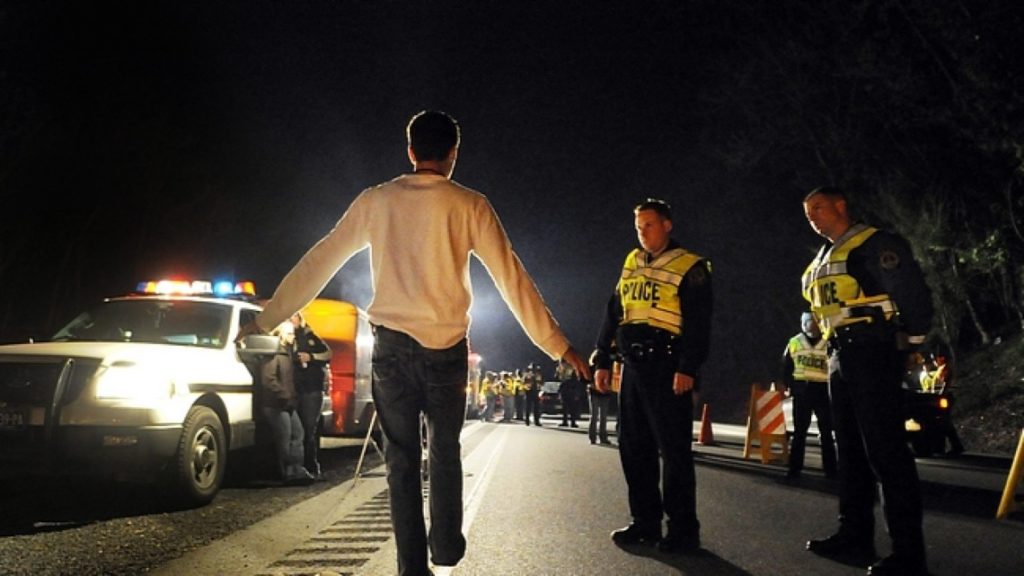
DWI FAQs
DWI stands for “Driving While Intoxicated”, and is a violation of N.J.S.A. 39:4-50. Any person in the State of New Jersey, who operates a motor vehicle while under the influence of either (1) alcohol, or (2) drugs, whether the drugs be illegal or prescription, and even if they are prescribed to you, is guilty of DWI. In New Jersey, you are considered to be under the influence if your blood alcohol concentration (BAC) is 0.08% or more. However, you may also be convicted of DWI without a breath or blood test reading if, based on the totality of the circumstances, which include the officer’s observations, your performance on any field sobriety tests (FSTs), your demeanor, the smell of an alcoholic beverage on your breath, your admission of having consumed alcohol, and your driving conduct (i.e., speeding, swerving, etc.), the judge finds that there is enough evidence to believe, beyond a reasonable doubt, that you were under the influence of alcohol at the time you were stopped.
What is the difference between DWI and DUI?
Nothing. New Jersey does not distinguish between these two terms. While technically “DWI” means “Driving While Intoxicated” and “DUI” means “Driving Under the Influence,” there is no distinction in meaning in New Jersey. Sometimes you will hear lawyers or police officers say “DWI” or “DUI” and you may think that they are describing two different situations, but the terms are used interchangeably and mean exactly the same thing.
Is DWI a criminal offense in New Jersey?
No. Although this may seem surprising, DWI is a motor vehicle offense in New Jersey, and is not criminal. This means that you will not be left with a criminal record as a result of a conviction for DWI.
What are the penalties for DWI in New Jersey?
The penalties for a DWI conviction in New Jersey vary depending on whether it is a first, second, or third or subsequent offense. In general, the penalties include driver’s license suspension, fines, installation of an ignition interlock device in your vehicle, motor vehicle surcharges, attendance at IDRC classes, and possibly jail time. See the section on penalties on this website for more detailed information.
What must the State prove for me to be convicted?
Although DWI is not a criminal offense in New Jersey, it is a “quasi-criminal” offense, which means that the State is required to prove your guilt beyond a reasonable doubt.
What are the defenses for DWI in New Jersey?
There are many defenses to DWI, which are too numerous to name here and largely depend on the exact circumstances of your case. In general, you may have a defense if the Alcotest® was not operating properly, or if the officer did not administer the field sobriety tests to you in the prescribed, standardized manner. You should contact an attorney from this office to discuss the particulars of your case.
Will my license be suspended if I am convicted?
Yes. See the section on penalties for details on the length of DWI suspensions.
If my license is suspended for DWI, will New Jersey allow me limited driving privileges?
No. New Jersey does not grant hardship licenses or limited driving privileges to persons with suspended licenses for any reason.
Can I have a jury trial?
No. In New Jersey, you are only entitled to a trial by jury on indictable offenses heard in Superior Court. If your DWI case goes to trial, your case will be heard and decided by the municipal court judge.
Can my DWI charge be plea bargained to Reckless Driving?
No. In New Jersey, DWI charges cannot be plea bargained. If the State cannot prove the DWI charge against you beyond a reasonable doubt, the municipal prosecutor may choose to dismiss it and allow you to plead guilty to a lesser charge, such as Reckless Driving, but if the State has the evidence to convict you, it may not plea bargain your DWI to a lesser offense.
Can I refuse to submit to breath testing?
No. In New Jersey, refusing to submit to chemical breath testing is a separate offense under N.J.S.A. 39:4-50.4a. A conviction for Refusal carries with it similar penalties to a conviction for DWI, and the severity of those penalties depends on whether it is a first, second, or third or subsequent offense. In all cases, a conviction for Refusal carries with it a mandatory license suspension.
What are the defenses for Refusal?
Unlike DWI, there are not many recognized defenses for Refusal. If you are charged with Refusal, your chances of conviction are very high. Please contact one of the attorneys at this office for more information.
Will a DWI conviction appear on my record? What about my arrest?
It depends on what you mean by “record.” No, a DWI conviction will not appear on a criminal record, nor will any arrest appear on a criminal record. However, a DWI conviction will appear on your driver’s abstract.
Can I have my DWI conviction expunged?
No. Because DWI is a not a criminal offense, it cannot be expunged. As mentioned above, your DWI conviction will appear on your driver’s abstract, where it will stay forever. There is no procedure for getting prior motor vehicle offenses removed from your abstract, and the conviction will not “drop off” due to the passage of time.
What effect will a DWI conviction have on my car insurance?
The lawyers at this office are not experts in insurance, and each individual insurance company is different. At the very least, you should expect your car insurance premium to increase pretty dramatically, and at worst, your policy could be canceled. Contact your insurance company or consult your insurance policy documents for information on how a DWI conviction will impact your policy.
